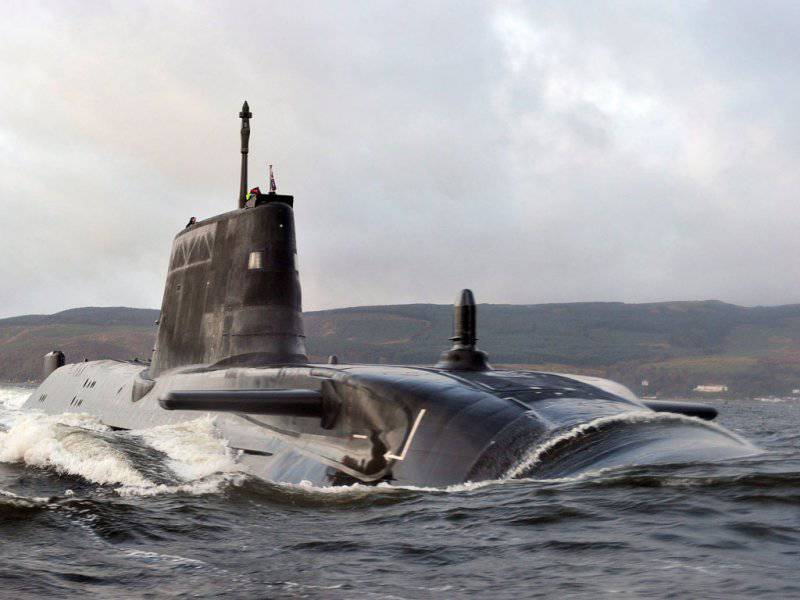UK not able to upgrade nuclear shield
An identical replacement of the British nuclear deterrence system with a new one is an impossible task for material reasons, says Danny Alexander, First Deputy Minister of Finance of Great Britain, for the first time.
Besides, there is no need for this, the State Minister is sure, since there are “reliable and solid alternatives” to the current system, the basis of which is based on submarine-based Trident ballistic missiles.
In an interview with the British newspaper The Guardian, Alexander emphasized that the state treasury of the United Kingdom in the foreseeable future is simply not able to secure the construction of a new underwater fleetsufficient to accommodate the current number of nuclear missiles. This fact, he noted, must be recognized and based on it when planning the modernization of the national "nuclear shield."
“Given the financial pressure that is now being felt throughout the public sector, and all the tasks that the government needs to perform and pay for, as well as taking into account problems in other areas, I find it financially unrealistic that we can somehow form a multi-billion dollar fund to pay for this replacement, ”said Alexander.
The UK nuclear fleet - four Vanguard class submarines with Trident missiles on board - will have spent their technical resources by the middle of the 2020s. Without replacing outdated submarines with an equal or slightly smaller number of new - Class "Compressor" - the United Kingdom can lose its "nuclear shield" in 20 in years if it does not abandon the sea-based ballistic missiles. The current coalition government of the country, headed by Prime Minister David Cameron, reaffirmed in principle its commitment to the sea-based national nuclear deterrence system, but the final decision on this issue was postponed until 2016, for the period after the next parliamentary elections in the country, ITAR reports -TASS
Prior to this deadline, it was decided to conduct a thorough analysis of various options for modernizing the Trident system, taking into account the fact that the construction of even three Successors and the deployment of nuclear weapons may require up to 100 billion lbs. of article (160 billion dollars), and then also on 3 billion lbs. of art. on their annual maintenance. The conduct of such a comprehensive analysis was entrusted to Nika Harvey, former state minister for armed affairs. And after he left this post in September of 2012, the mission of continuing the analysis was entrusted to Alexander, who for the first time in this capacity stated his position on this crucial issue for the country's security in an interview with the Guardian.
“We are in a position where the costs of the subsequent (modernized) system will have to be paid from the budget of the Ministry of Defense,” he said. “And we have no magic pot of money from which we could draw funds beyond this budget.” We, as a government, have always clearly stated this. At least, this was done by me and the Minister of Finance ”.
Alexander made it clear that in the prevailing material conditions, Britain has no other way to save its “nuclear shield”, except to find an acceptable alternative to the existing Trident system. He refrained from specifying options on the grounds that until the completion of the analysis, this information is a state secret.
“We need to see if there are other replacement ways that would be more cost effective,” he said. - For the first time in a long time, we asked ourselves these questions. We really need to ask these important questions regarding our position. Is it really necessary in the XXI century on a daily basis, 7 days a week, 12 months in a year to keep submarines on duty in the sea? All this requires careful analysis and consideration with the presentation of alternatives. ”

Information